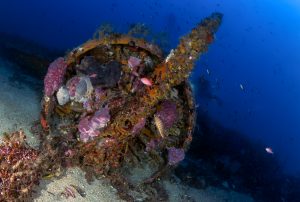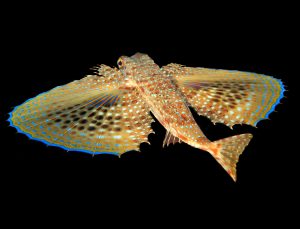T – TU QUOQUE TATA MIHI?
“Tata” (or “Tati”) is the affective nickname which Claudia and I have always addressed each other. “Tati wait for me!” … “Tati how do you do this?” … “Tati how do you open that?” Are just some examples of the typical leit- motiv of our travels. The first trips, very suffered by our “Mediterranean puppy” (because very often she moves in a clumsy way like puppies who are not aware of their size and, in her case, sinuosity), have constituted a sort of baptism of fire, in whose her complaints about the distance from home alternated with sentences such as “But do you want to put the sea of Naples?”, “But do we want to compare it with eggplant Parmigiana?”, “Have you ever tasted a true caffe’?”, and so on. However, at the China-Malaysia tour, I must say that Claudia arrives quite well, so much so that the usual sprain that usually causes me in the arm, during the take-off and landing of the flight, is strangely contained. Leaving that airport, I feel doped: certainly out of tune with the travel and the time zone, but curious and enthusiastic to know everything about a reality so distant, ancient and fascinating. While I list to Tati the reasons why we must take a taxi as soon as possible and go everywhere, a distinguished gentleman in elegant clothes passes us on the left and spits an immeasurable amount of saliva on the ground. Having reached the taxi, Rossella obviously agrees with me on the fact of going around a bit, perhaps in some bazaar, to immediately immerse ourselves in the “local cultural lard”: Too bad that the very kind taxi driver does not utter or understand any word that is not a Chinese dialect. So let’s try to show the business card of our hotel, reluctantly postponing the trip, and at that point he reacts positively; he has a small snack of mussel broth from the jar kept under the seat, which his wife will have lovingly prepared for the day at work, and starts safely. But I’m still determined to change Tati’s mind and make her fall in love with this civilization. Point on the ancient city of Shanghai, a splendid beating heart of wooden houses and sake’ services in the middle of a futuristic metropolis of lights and skyscrapers, in which 360 days a year you cannot see the sky, but a strip of smoke and haze generated by pollution. But the real ace up my sleeve is in Hong Kong: a cable cabin suspended over the bay (one of the most sublime I have ever seen) leads us to the temple of Buddha, a sacred place in the hills, where Siddhartha had his first revelations. Sublime is the adjective that comes to mind because it is an important place, you can feel it in the air, where many things make you feel small: the wonderful nature, the ocean view, the giant statue of the Buddha, even cats that circulate you have the impression that they have received some illumination that you are still unaware of. And then we cannot refrain from eating at the table of the monks, sitting on the trunks among them, to thank for what you have not the faintest idea they just put on your plate. And it is there that Tati, holding his chopsticks, with an empty stomach and tears in his eyes, whirls a broth of seaweed and rice and solemnly sings “Erba di casa mia”.
U – URRA’ FOR A TRUE MECENATE
One more experience that in retrospect seems to be the result of some dream journey, but instead, four witnesses swear they really lived it. Cape d’antibes, Côte d’Azur: warm summer, a fabulous day when you feel like Grace Kelly on the coast. Except that one of the very refined vintage elevators of our hotel gets stuck between the second and third floors and the undersigned, who also has a marked claustrophobia among her defects, begins to pant and literally undress for lack of breath. While Laura and Claudia try to cover me to avoid the public streaptease (the elevator is one of the grated ones, so the hotel guests are free to enjoy the scene from outside) Rossella gives the alarm, and in a few moments we are free. Taking our breath away, we are led by luxurious cars with tinted windows into a kind of villa … no villa is an understatement … a resort … no, this too is reductive … a golden village hidden among the crystalline coves of the Cote d’Azur. They show us a villa within the villa, where we can sit and wait, and they leave us there. Eight hours later we understand that something is happening: from the windows we see a series of sparkling figures in gold, silver, emerald and indigo costumes. They are a sort of genderfluid mimes, nymphs and fauns who move with extreme elegance in the marine scrub. The music begins: before us the Gipsy king. One of the fauns comes to get us and leads us silently, with big smiles, to the stage. During the splendid introduction by Nino Rota we have time to understand where we are and where our audience is: there are seven diners, practically a family dinner, complete with a granddaughter in the arms of her grandmother who, between one song and another, intrigued from our clothes or perhaps from our singing, runs towards us, touches us, scrutinizes us and then gives us a jewel each. Noblesse oblige.
V – VECHENZE AND PEPPIRI BETWEEN US
If it is true that the “parapanzo” is always lurking, we have learned that the “peppiro” and the “vechenza” are too. “Peppiro” and “Vechenza”, two of Rossella’s gems, were two more travel companions, illegitimate children of our paper-like concert dyslexia, secretly insinuated themselves into the stanzas of the Bocellian covers. “Canto della terra”, “Con te partirò” and “A mother’s prayer” have always been our “piece de resistance”, kindly borrowed from Andrea’s homonymous planetary hits, very often performed with or without him. Logically, between the version “with” and the version “without” the parts are redistributed between us and the attacks and interventions change. So it happens that, concentrating on your entrance and on the exact counterpoint, every now and then you get a “it really looks like your PEPPIRO (alias breath)”, or a “we dream of a world without AGE (alias violence)”, because tilt the neuron of language, the important thing is to save the rhyme and the agreement!
Z – Zzzzzzzzz! GINGER FOR BEES OR MOSQUITOES
I report a dialogue that really happened. Rossella (while a minivan takes us to Castelnuovo Berardenga, a charming Tuscan village where we will sing in the evening): “You know, I read that ginger can also be used against mosquitoes”. Laura: “No I’m sorry, this is cacophonous; the ze`nzero will be used against za`nzare “. Having solved the boring summer problem of mosquito bites during outdoor concerts, we enter an ancient door that reveals a small medieval courtyard overlooked by period buildings, terraces and balconies, full of flowers and lanterns. The show is both familiar and breathtaking, as only an Italian village can be. Let’s get ready to go on stage and after the concert dinner and relax in the beautiful suites: but the relaxation is suddenly disturbed by another unauthorized winged sting that has entered between the wooden beams of the ancient ceiling. There are those who jump into “deshabille ‘” to try to flush out the guest with a wet towel, those who continue to eat regardless of the fact, while Claudia does not think twice and hangs up on the phone calling our contact person, the organization, the reference agency and the concierge. “THERE IS A BEE!” she keeps repeating to everyone undaunted, and whatever she hears on the other end of the phone answers as if hypnotized “THERE IS A BEE!”. I promptly intervene asking her to calm down and give us a hand to chase her away: “THERE IS A BEE!” is the only answer I get. In the end, an unblemished and fearless knight frees us from the mythological fair, but the moral is: it doesn’t matter whether you are in front of a za`nzara or a bee. If in doubt, forget about the ginger and bother your neighbor until he has kicked it out.













